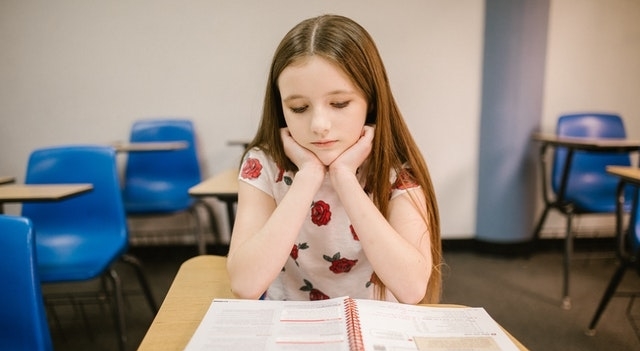An estimated 25% of students have undetected vision problems that may be impacting their reading success.
Many children who struggle with reading fluency are intelligent and astute — they just lack the visual skills necessary for success in reading.
Reduced visual skills create challenges for students who are expected to read at grade level, as strong visual skills are crucial for all areas of academic achievement.
The visual skills play an important role when it comes to reading, writing, spelling, and virtually all other academic skills required for success in learning.
For children with visual dysfunction, or reduced visual skills, reading can be a frustrating and daunting task— which often leads to avoidance of the activity altogether.
Here are four of the main reasons why your child may be struggling to read, and how vision therapy can help your child become a confident reader — and maybe even enjoy reading!
1. Eye tracking problems
Eye tracking is when the eyes move in coordination, both smoothly and accurately. Tracking skills allow a student to move their eyes along a line of text, from word to word, without losing the place.
A child with eye tracking problems will have slow and inaccurate eye movements, causing them to frequently lose their spot and skip words or lines of text while reading.
To compensate for this reduced visual skill, the child may present with eye flickering or tilt their head while reading to gain clarity. This takes a lot more energy and effort from the child— resulting in a loss of fluency and comprehension.
2. Eye teaming problems
Eye teaming is when the eyes work in sync with one another to send visual information to the brain. Each eye sends a slightly different image to the brain to be fused together into a cohesive image— enabling a clear view of the letters and words on the page.
A child with eye teaming problems may experience blurry or double vision, eye strain and headaches.
The words may even appear to float on the page. This often results in reading difficulties, reduced attention for reading and even avoidance of reading.
SEE RELATED:
Vision and Learning Difficulties
If your child is reading below grade level, schedule a consultation with an eye doctor near you.
3. Visualization problems
Visualization is the ability to imagine something in the mind.
This skill is important for reading, as it allows you to recall words from your lexicon, spell them correctly and ‘see’ the story as if you’re watching a movie.
A child who has difficulty with visualization will struggle to generalize information into larger concepts, which can impact their spelling and comprehension.
4. Focusing difficulties
Focusing is the ability to adjust your gaze from one image to the next, at varying distances, while maintaining clear vision. This generally occurs automatically as the eye muscles quickly contract and relax, but can sometimes be underdeveloped in a child.
A child with focusing problems will have difficulty maintaining clear vision while reading, completing assignments or taking notes from the board in the classroom.
To regain vision clarity, the child will need to refocus their eyes with each eye movement. This can lead to eye strain and headaches and severely impact reading comprehension.
How can you strengthen your child’s visual skills?
With a comprehensive eye exam and functional vision evaluation, you can determine if visual dysfunction is at the root of your child’s reading difficulties. If so, your eye doctor may recommend vision therapy to help strengthen your child’s visual skills.
Vision therapy is an effective treatment program aimed at strengthening the connections between the eyes and brain to improve the visual skills necessary for clear and comfortable vision.
Each program is customized to the individual needs of the child and may include the use of prisms, lenses, filters, occluders and specific eye exercises to help your child gain the visual skills they need to improve their reading skills and overall academic performance.
LEARN MORE: Vision Therapy for Children
If you have any concerns about your child’s reading, schedule a consultation with an eye doctor near you.
Reading can become a frustrating and daunting task for children with reduced visual skills.
Fortunately, vision therapy can help.









